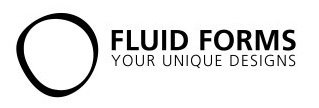- Commercial units, such as the Desktop Factory and MCOR printers.
- Open Source hardware solutions such as RepRap, Fab@Home and the recently announced MakerBot
There’s a third option not mentioned by Fluid Forms, being use of a 3D print service such as Shapeways, Ponoko and others. While they have large communities and are easily usable, they may not be exactly inexpensive. The popular 3D print services all seem to use the expensive commercial 3D printers (Z Corp, Dimension, Objet, etc) and the costs of those devices (and their associated consumables) is inevitably passed on to the print user.
Fluid Forms’ solution was to opt for an Open Source offering, either MakerBot or RepRap. While this might seem depressing if you’ve been hoping for an inexpensive commercial offering, we’re not so certain. If MakerBot and RepRap gain vast legions of users, it’s likely that improved products could emerge from their space. These could be commercial offerings based on the inexpensive Open Source hardware.
Software companies do this all the time, so why not hardware companies?
Via Fluid Forms


